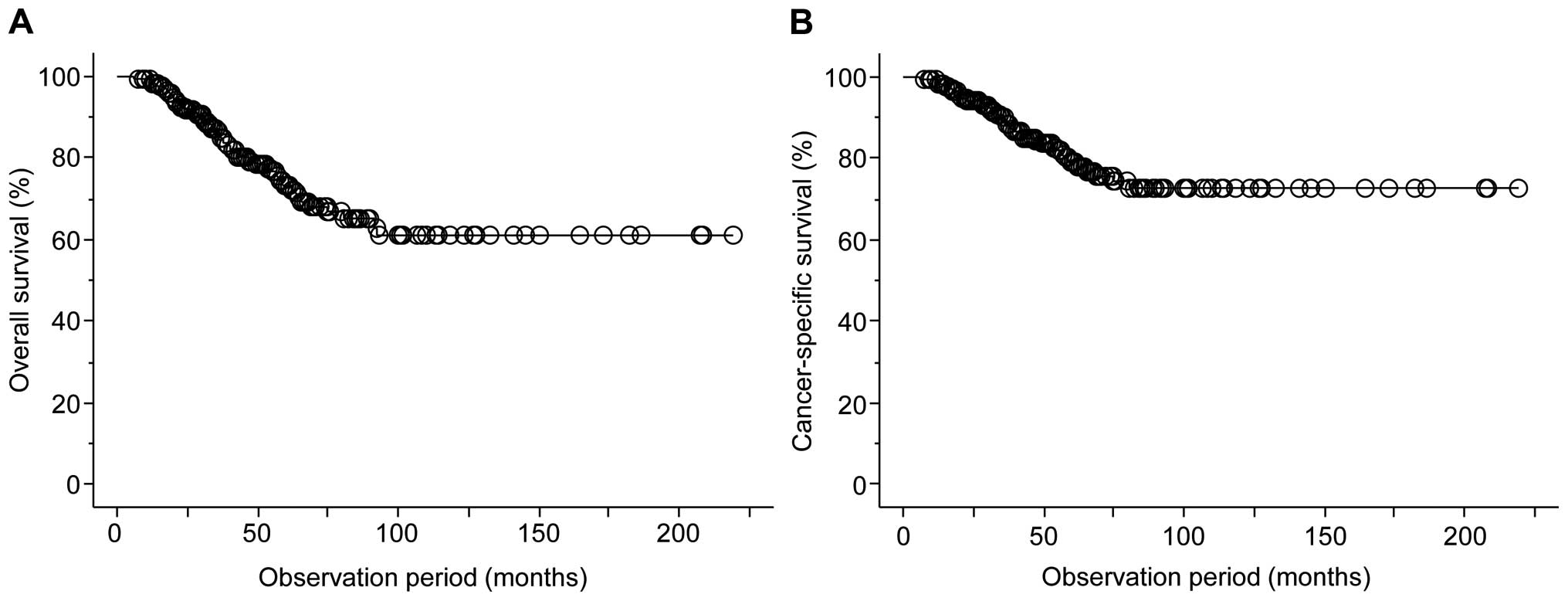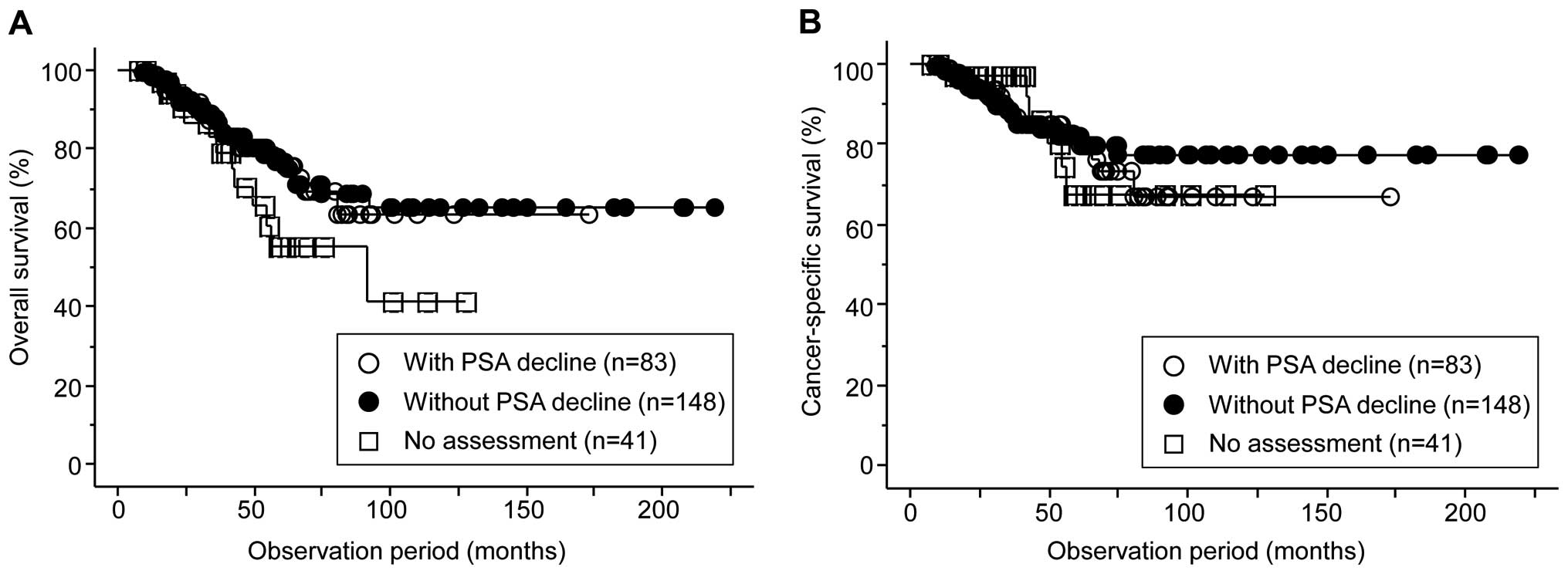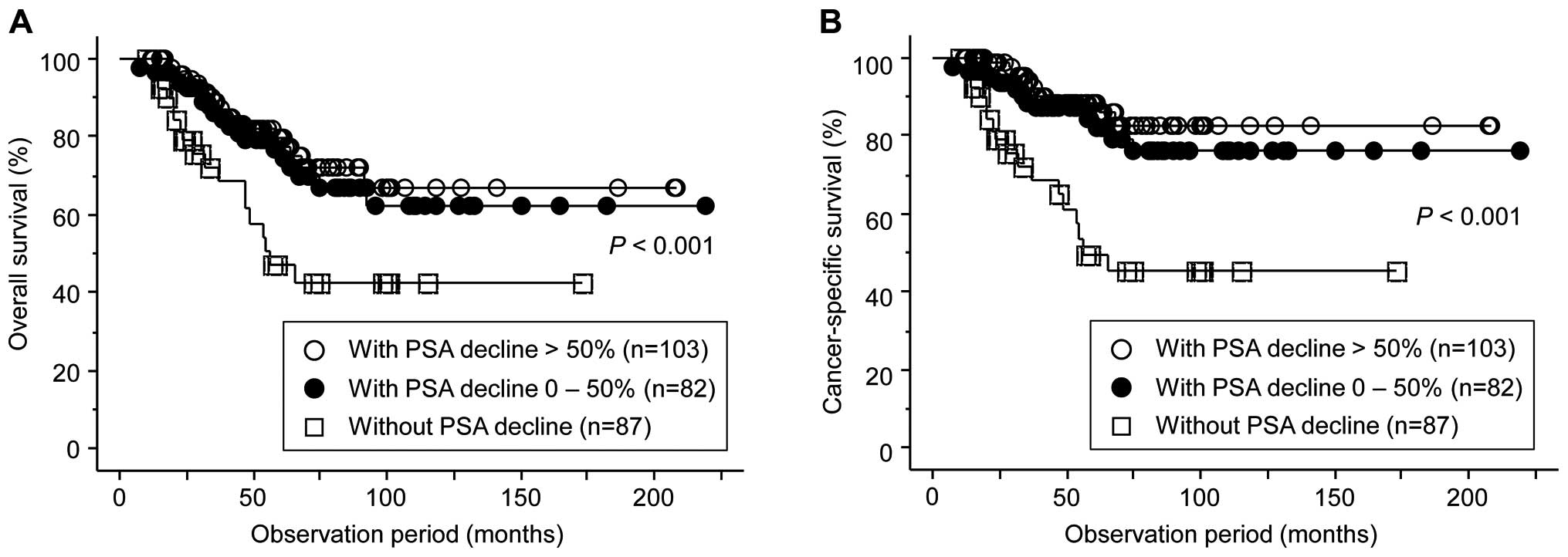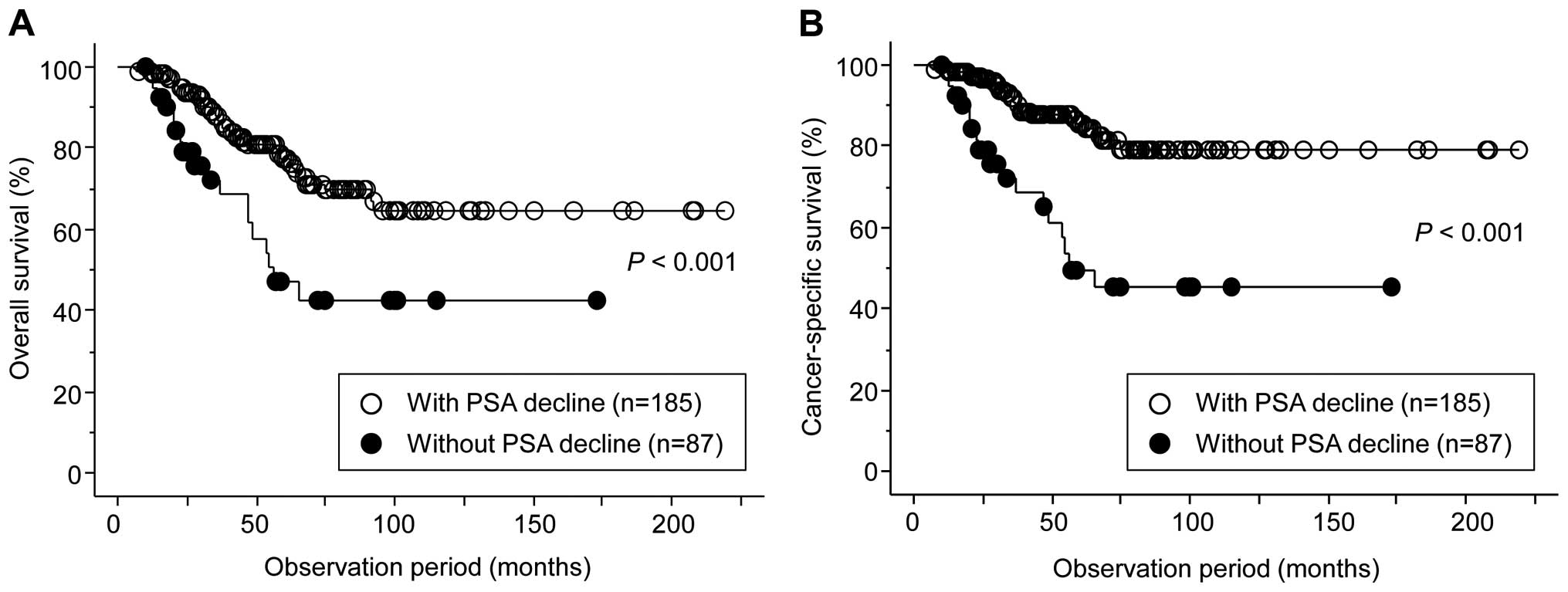|
1
|
Siegel R, Ma J, Zou Z and Jemal A: Cancer
statistics, 2014. CA Cancer J Clin. 64:9–29. 2014. View Article : Google Scholar : PubMed/NCBI
|
|
2
|
Wu JN, Fish KM, Evans CP, White Devere RW
and Dall'Era MA: No improvement noted in overall or cause-specific
survival for men presenting with metastatic prostate cancer over a
20-year period. Cancer. 120:818–823. 2014. View Article : Google Scholar : PubMed/NCBI
|
|
3
|
Harris WP, Mostaghel EA, Nelson PS and
Montgomery B: Androgen deprivation therapy: Progress in
understanding mechanisms of resistance and optimizing androgen
depletion. Nat Clin Pract Urol. 6:76–85. 2009. View Article : Google Scholar : PubMed/NCBI
|
|
4
|
Tannock IF, de Wit R, Berry WR, Horti J,
Pluzanska A, Chi KN, Oudard S, Théodore C, James ND, Turesson I, et
al: Docetaxel plus prednisone or mitoxantrone plus prednisone for
advanced prostate cancer. N Engl J Med. 351:1502–1512. 2004.
View Article : Google Scholar : PubMed/NCBI
|
|
5
|
Petrylak DP, Tangen CM, Hussain MH, Lara
PN Jr, Jones JA, Taplin ME, Burch PA, Berry D, Moinpour C, Kohli M,
et al: Docetaxel and estramustine compared with mitoxantrone and
prednisone for advanced refractory prostate cancer. N Engl J Med.
351:1513–1520. 2004. View Article : Google Scholar : PubMed/NCBI
|
|
6
|
Sharifi N, Dahut WL and Figg WD: Secondary
hormonal therapy for prostate cancer: What lies on the horizon? BJU
Int. 101:271–274. 2008. View Article : Google Scholar : PubMed/NCBI
|
|
7
|
Miyamoto H, Messing EM and Chang C:
Androgen deprivation therapy for prostate cancer: Current status
and future prospects. Prostate. 61:332–353. 2004. View Article : Google Scholar : PubMed/NCBI
|
|
8
|
Suzuki H, Okihara K, Miyake H, Fujisawa M,
Miyoshi S, Matsumoto T, Fujii M, Takihana Y, Usui T, Matsuda T, et
al: Alternative nonsteroidal antiandrogen therapy for advanced
prostate cancer that relapsed after initial maximum androgen
blockade. J Urol. 180:921–927. 2008. View Article : Google Scholar : PubMed/NCBI
|
|
9
|
Sartor AO, Tangen CM, Hussain MH,
Eisenberger MA, Parab M, Fontana JA, Chapman RA, Mills GM, Raghavan
D and Crawford ED: Southwest Oncology Group: Antiandrogen
withdrawal in castrate-refractory prostate cancer: A Southwest
Oncology Group trial (SWOG 9426). Cancer. 112:2393–2400. 2008.
View Article : Google Scholar : PubMed/NCBI
|
|
10
|
Miyake H, Hara I and Eto H: Clinical
outcome of maximum androgen blockade using flutamide as second-line
hormonal therapy for hormone-refractory prostate cancer. BJU Int.
96:791–795. 2005. View Article : Google Scholar : PubMed/NCBI
|
|
11
|
Kojima S, Suzuki H, Akakura K, Shimbo M,
Ichikawa T and Ito H: Alternative antiandrogens to treat prostate
cancer relapse after initial hormone therapy. J Urol. 171:679–683.
2004. View Article : Google Scholar : PubMed/NCBI
|
|
12
|
Okihara K, Ukimura O, Kanemitsu N,
Mizutani Y, Kawauchi A and Miki T: Kyoto Prefectural University of
Medicine Prostate Cancer Research Group: Clinical efficacy of
alternative antiandrogen therapy in Japanese men with relapsed
prostate cancer after first-line hormonal therapy. Int J Urol.
14:128–132. 2007. View Article : Google Scholar : PubMed/NCBI
|
|
13
|
Okegawa T, Nutahara K and Higashihara E:
Alternative antiandrogen therapy in patients with
castration-resistant prostate cancer: A single-center experience.
Int J Urol. 17:950–955. 2010. View Article : Google Scholar : PubMed/NCBI
|
|
14
|
Kassouf W, Tanguay S and Aprikian AG:
Nilutamide as second line hormone therapy for prostate cancer after
androgen ablation fails. J Urol. 169:1742–1744. 2003. View Article : Google Scholar : PubMed/NCBI
|
|
15
|
Beltran H, Beer TM, Carducci MA, de Bono
J, Gleave M, Hussain M, Kelly WK, Saad F, Sternberg C, Tagawa ST
and Tannock IF: New therapies for castration-resistant prostate
cancer: Efficacy and safety. Eur Urol. 60:279–290. 2011. View Article : Google Scholar : PubMed/NCBI
|
|
16
|
Suzman DL and Antonarakis ES:
Castration-resistant prostate cancer: Latest evidence and
therapeutic implications. Ther Adv Med Oncol. 6:167–179. 2014.
View Article : Google Scholar : PubMed/NCBI
|


















